Military Theory VI.
This is coolbert:
From the time of Clausewitz and Jomini, there is an almost one hundred year period where little or NO additional insight was gained into military theory.
That is not to say that there were a whole host of military men that commented on military history, wrote extensively on the subject, and alluded to military theory. But these authors seem to NOT have added to the subject in a significant manner.
This list of military writers would include such luminaries as:
Dennis Mahan. American military author. Father of the later to be great military author Alfred Mahan.
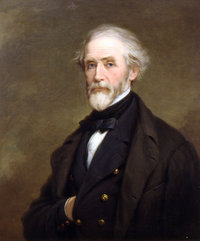
"He was the first great American military theorist. He compiled his own version of maxims and rules he thought relevant to military theory in America, but he never tried to produce a theory."
von Moltke the Elder. The great Prussian commander. Presided over the Prussian Army during the time of German reunification and the elevation of Germany with Prussia at the lead as one of the world's great powers.
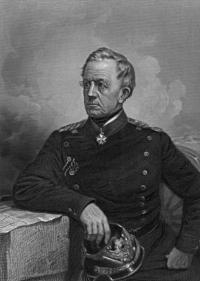
"an eminent historian and eminent military thinker. . . . he did little to advance military theory . . ."
Ardant du Picq. French military officer at the time of the Franco-Prussian War [1870].
"perhaps the most perceptive writer on the subject of moral forces [behavioral considerations] in war."
Alfred Mahan. Great American military writer and theorist. Son of Dennis Mahan. Concentrated on naval warfare. Demonstrated through his writings the importance that navies have played throughout history.

"He recognized and analytically employed principles, but never attempted a scientific, analytical approach to military theory."
[military leaders and statesmen of world caliber around the year 1900 would have found the writings of Mahan to be obligatory reading. As I have said in a previous blog entry, all self-respecting world powers of the period found it necessary to have vast pelagic [deep-water] navies to show the flag the world over. Germany, Great Britain, France, United States, Japan, Russia, and even the Austro-Hungarian Empire all desired and had large navies that could extend power and "reach" to all parts of the world.]
von Schlieffen. Chief of Staff of the German Army in the period 1891-1905. Formulated the famous Schlieffen Plan.
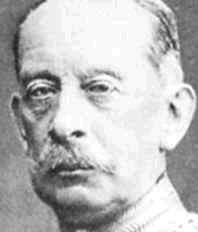
"another thoughtful, profound thinker on war, who never attempted to distill a theory of combat from his obviously encyclopedic knowledge of military history . . . "
von der Goltz. German military thinker.
"refers frequently - - if somewhat vaguely - - to the theory of war, and to its principles."
Foch. Frenchman who commanded the allied forces on the Western Front at the end of World War One [WW1]. Is reputed to have taught metaphysics [philosophy] in his "spare" time.
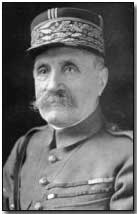
"He did try to think and write in scientific, theoretical terms, and there was much that was sound in his approach to analyzing military history."
Douhet. Italian WW1 military officer turned military aviator.
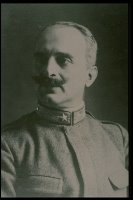
"was the first and most important theorist of air warfare . . . put together a coherent, consistent theory of air warfare, which correctly anticipated the dominant role of airpower in all subsequent wars [after WW1]."
Again, these men all contributed to military theory, but not advancing the subject in a big way. NOT in the manner of a Clausewitz or a Jomini.
coolbert.
Labels: Theory

0 Comments:
Post a Comment
Subscribe to Post Comments [Atom]
<< Home